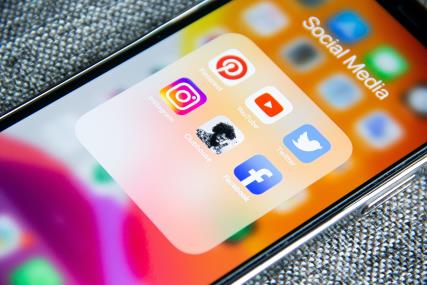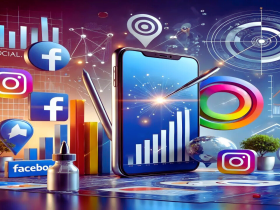In the ever-evolving digital landscape, platforms rise and fall, and their functionalities blur. One platform that consistently sparks debate is YouTube. Is YouTube a social media platform? Or is it simply a video-sharing service? This question has puzzled users, marketers, and tech enthusiasts alike. In this comprehensive blog post, we’ll delve deep into YouTube’s features, user interactions, and overall impact to determine whether it truly qualifies as a social media platform.
From Humble Beginnings to Global Phenomenon
YouTube’s journey began in 2005 as a simple platform for sharing videos. Is YouTube a social media platform now? To understand this, we need to acknowledge its evolution. It quickly gained popularity, attracting millions of users who flocked to watch and share content.But does its massive user base automatically qualify it as a social media platform? Let’s investigate further.
Defining Social Media: Key Characteristics
Before we can definitively answer the question, “Is YouTube a social media platform?Generally, social media platforms share these core characteristics:
- User-generated content: The platform’s primary content comes from its users.
- Profiles and identities: Users create profiles that represent their online identity.
- Connections and communities: Users can connect with others and form communities based on shared interests.
- Sharing and interaction: Users can share content and interact with each other through comments, likes, and shares.
- Direct messaging: Platforms often provide a way for users to communicate privately.
YouTube’s Social Features: A Closer Look
Now, let’s examine how YouTube aligns with these characteristics. Is YouTube a social media platform based on its features? Here’s a breakdown:
- User-generated content: YouTube’s lifeblood is user-generated videos.
- Profiles and identities: Users create channels with unique names and profile pictures, establishing their online presence.
- Connections and communities: Users can subscribe to channels they enjoy, creating a network of content creators and viewers with shared interests.
- Sharing and interaction: YouTube offers various ways to interact. Users can like, comment, and share videos. They can also engage in discussions within comment sections and participate in live chats during streams.
- Direct messaging: While not as prominent as in other platforms, YouTube does offer a direct messaging feature for private communication between users.
YouTube vs. Traditional Social Media Platforms
While YouTube exhibits many social media characteristics, it also differs from traditional platforms like Facebook or Instagram. Is YouTube a social media platform in the same vein? Here’s a comparison:
- Content Focus: YouTube primarily revolves around video content, while platforms like Facebook and Instagram accommodate various formats, including text, images, and short-form videos.
- Content Consumption: YouTube leans toward passive consumption, with users often watching videos without actively engaging. However, features like live streams and community posts encourage more real-time interaction.
- Algorithm and Discoverability: YouTube’s algorithm prioritizes watch time and relevance, suggesting videos based on user viewing history. This differs from platforms that emphasize social connections and chronological feeds.
The Community Tab: A Social Hub Within YouTube
One of YouTube’s most overt social features is the Community tab. Channels with over 1,000 subscribers can access this tab, which gives creators the following options:
- Post updates and announcements.
- Share polls and quizzes to engage their audience.
- Create a sense of community by interacting directly with their viewers.
Does the Community tab make YouTube a social media platform? While it enhances the social aspect, it’s not the sole defining factor.
Live Streaming: Real-Time Interaction and Engagement
YouTube Live has become increasingly popular, allowing creators to connect with their audience in real time. Viewers can participate in live chats, ask questions, and even donate to their favorite streamers. This feature blurs the lines further, making the “Is YouTube a social media platform?” debate even more complex.
YouTube Shorts: Embracing the Short-Form Video Trend
With the rise of TikTok and Instagram Reels, YouTube introduced Shorts, its own short-form video format. This addition caters to a different audience and encourages more casual content creation and consumption. Does this move solidify YouTube’s position as a social media platform? It certainly strengthens its case.
The Power of Influencers: Building Communities on YouTube
YouTube has fostered a thriving ecosystem of influencers who cultivate dedicated communities around their channels. This community-building aspect is a hallmark of social media platforms.
YouTube as a Search Engine: A Unique Function
Interestingly, YouTube is not just a platform for entertainment and social interaction. It’s also the second largest search engine globally. Users often turn to YouTube for information, tutorials, and answers to their questions. This dual functionality further complicates the “Is YouTube a social media platform?” question.
YouTube for Business: Marketing and Brand Building
Businesses leverage YouTube to connect with their target audience, build brand awareness, and drive sales. Is YouTube a social media platform for businesses? Absolutely. It offers a powerful platform for:
- Video marketing: Showcasing products or services through engaging video content.
- **Influencer marketing:** Collaborating with YouTubers to reach a wider audience.
- Community building: Engaging with customers and fostering brand loyalty.
The Role of Comments: Fostering Conversations and Connections
YouTube’s comment section is a hotbed of discussion and debate. Users share their opinions, react to videos, and interact with creators and fellow viewers. This dynamic exchange of ideas is a key element of social media.
YouTube’s Impact on Society: Shaping Culture and Trends
YouTube has undeniably influenced popular culture, shaping trends, launching careers, and giving a voice to diverse communities. Is YouTube a social media platform with societal impact? Without a doubt. It has become a powerful force in:
- Entertainment provides a platform for musicians, comedians, and entertainers to reach a global audience.
- Education: We provide tutorials, lectures, and educational content on a vast range of subjects.
- Social activism: Empowering individuals and groups to raise awareness about important issues.
The Dark Side of YouTube: Addressing Challenges and Concerns
While YouTube offers numerous benefits, it also faces challenges, including:
- Misinformation and harmful content: The spread of false or misleading information can have serious consequences.
- Cyberbullying and harassment: The anonymity of the internet can embolden individuals to engage in harmful behavior.
- Addiction and excessive screen time: YouTube’s addictive nature can lead to unhealthy levels of consumption.
YouTube’s Evolution: Adapting to the Changing Digital Landscape
YouTube has consistently evolved to stay relevant in the ever-changing digital world. Is YouTube a social media platform that embraces innovation?
- YouTube Premium: A subscription service offering ad-free viewing and exclusive content.
- YouTube Music: A dedicated music streaming service.
- YouTube Kids: A platform designed specifically for children.
The Future of YouTube: Trends and Predictions
As technology advances, YouTube is likely to continue evolving. We can expect to see:
- There is an increased focus on community building, with more tools and features available to foster interaction between creators and viewers.
- Enhanced personalization: AI-powered recommendations and tailored content experiences.
- Integration with other platforms: Seamless connections with social media and streaming services.
The Verdict: Is YouTube a Social Media Platform?
After examining its features, user behavior, and impact, we can confidently conclude that yes, YouTube is a social media platform. While it may differ from traditional platforms in some aspects, it fulfills the core criteria of social media:
- It thrives on user-generated content.
- It provides ample opportunities for interaction and community building.
YouTube’s Unique Position: A Hybrid Platform
It’s not just a social media platform; it’s also a video-sharing service, a search engine, and a powerful marketing tool. This multifaceted nature contributes to its immense popularity and influence.
Embracing YouTube’s Social Potential
Recognizing YouTube as a social media platform is crucial for both users and businesses. By comprehending its social dynamics, you can
- Build a loyal following: Create engaging content and interact with your audience.
- Connect with like-minded individuals: Join communities and participate in discussions.
YouTube’s Role in the Creator Economy
YouTube has played a pivotal role in the rise of the creator economy, empowering individuals to build careers by producing and sharing content. Is YouTube a social media platform that supports creators? Absolutely. It provides:
- Monetization opportunities: Creators can earn revenue through advertising, sponsorships, and merchandise sales.
- Creative freedom: YouTube allows creators to express themselves and share their passions with the world.
- A global reach: YouTube’s massive audience provides creators with the potential to reach millions of viewers.
YouTube’s Influence on Traditional Media
YouTube has disrupted traditional media, challenging established television networks and production companies.In many ways, yes. It offers:
- On-demand content: Viewers can access content anytime, anywhere.
- Diverse perspectives: YouTube offers a forum for voices that traditional media may marginalize.
- Lower barriers to entry: Anyone with a camera and an internet connection can create and share content.
The Importance of Responsible YouTube Use
While YouTube offers numerous benefits, it’s important to use the platform responsibly. This includes:
- Being mindful of your digital footprint: Think before you comment or share.
- Protecting your privacy: Be aware of the information you share online.
- Promoting positive interactions: Engage in respectful dialogue and avoid cyberbullying.
YouTube’s Accessibility: Breaking Down Barriers
YouTube’s accessibility features make it a more inclusive platform. Is YouTube a social media platform that prioritizes accessibility? Yes, it offers:
- Closed captions facilitate the accessibility of video content for individuals with hearing impairments.
- Screen readers: They enable visually impaired users to navigate the platform.
- Multiple language support: Breaking down language barriers and connecting people from around the world.
YouTube’s Educational Value: A Lifelong Learning Resource
YouTube has become a valuable resource for lifelong learning. Is YouTube a social media platform that promotes education? Indeed. It offers:
- Tutorials and how-to videos assist users in learning new skills and solving problems.
- Documentary films and educational channels provide in-depth information on a variety of topics.
- Online courses and lectures are making education more accessible and affordable.
YouTube’s Impact on Music: A New Era of Discovery
YouTube has revolutionized the music industry, providing a platform for artists to connect with fans and share their music with the world. Is YouTube a social media platform that supports musicians? Undoubtedly. It offers:
- Music videos and live performances have the potential to reach a global audience and build a fanbase.
- Independent music discovery: Uncovering new artists and genres.
YouTube’s Global Reach: Connecting the World
YouTube transcends geographical boundaries, connecting people from all corners of the globe. Is YouTube a social media platform that fosters global connections? Absolutely. It enables:
- Global communities: Connecting people with shared interests, regardless of their location.
- International collaboration: Facilitating collaboration between creators from different countries.
Conclusion
The question “Is YouTube a social media platform?” has a clear answer: Yes. YouTube has evolved beyond its initial purpose of video sharing to become a dynamic social space where users connect, interact, and build communities. While it may have unique characteristics that differentiate it from other social media platforms, its social features, user engagement, and societal impact solidify its position as a leading social media platform in the digital age.
FAQs
Is YouTube considered social media by marketers?
Yes, marketers widely recognize YouTube as a social media platform due to its vast user base, engagement opportunities, and potential for brand building and advertising.
Why don’t some people consider YouTube a social media platform?
Some argue that YouTube’s primary focus on video content and passive consumption differentiates it from traditional social media platforms that emphasize text-based communication and active interaction.
How does YouTube’s algorithm impact its social aspect?
YouTube’s algorithm prioritizes watch time and relevance, sometimes displaying content in a silo instead of exposing users to a variety of viewpoints and social interactions.
How does YouTube compare to other video-sharing platforms like TikTok and Vimeo?
While TikTok focuses on short-form videos and trends, Vimeo caters to a more professional audience with high-quality videos. YouTube offers a wider range of content and features, catering to diverse audiences and creators.
What is the future of social interaction on YouTube?
YouTube is likely to continue enhancing its social features, focusing on community building, live streaming, and interactive content formats to foster deeper connections between creators and viewers.




